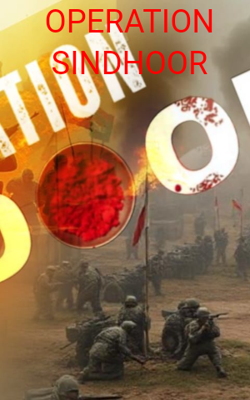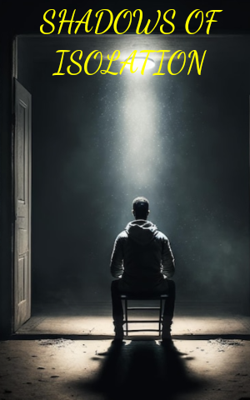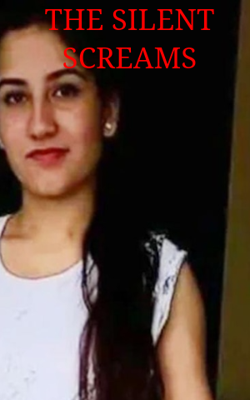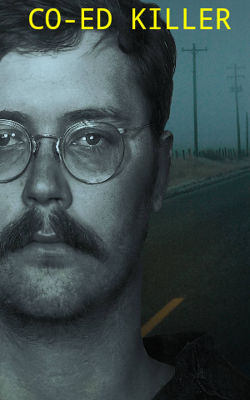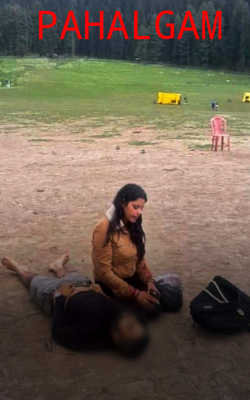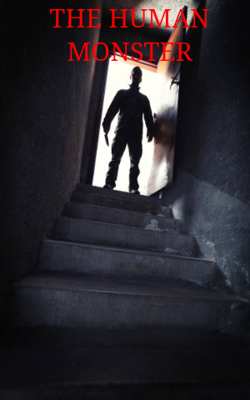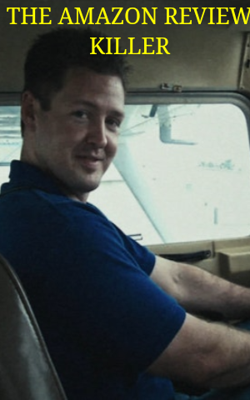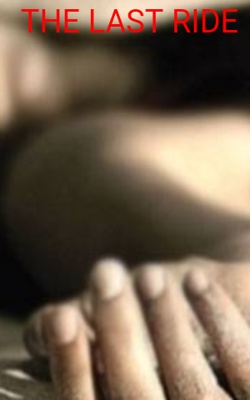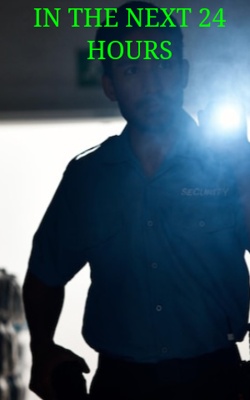THE RED REVOLUTION CHAPTER 1
THE RED REVOLUTION CHAPTER 1


NOTE: This story is completely a fictitious work and is not based on true life persons. But, is inspired from multiples of true life incidents. The story doesn't have any leads. Almost, all the characters are grey in this story. Style of writing was inspired from KGF: Chapter 1.
BHOPAL:
2018:
Many of us seem to think that by teaching every human being to read and write, we shall solve our human problems. But, this idea has proved to be false. The so-called education are not peace-loving, integrated people, and they too are responsible for the confusion and misery of the world.
One of Madhya Pradesh's famous TV channel, Colours Roja is waiting for an important person to come, whom they are going to interview. They all are standing puzzled and are hooked to know, when he would come. The organizer Anand Surana, with his ID card stands panicking, wearing a thick jeans pant and blue coat suits.
That important person comes to the channel, in his Pijamas and white pants, wearing a steel-rimmed spects. He is a 56-year old man. He goes along with them inside the channel and the organizer tells, "Friends. Lets start the program. This program name is, "Vanakkam Makkale and this is VJ Arjun. He is Author Raghavendran, with us."
"Hello" said Raghavendran, greeting the public with his hands, in the TV, which is screening all over the state.
"Sir. The non-fiction book titled, "The Untold Revolution" that you have written earned critical acclaim from Indian Government, despite been banned by our government. You told that, this book was inspired from your own life events during a gas tragedy, in our district. Is that true?"
"Ah! Yes. I wrote this book, keeping in mind about the events, that I had witnessed in 1984" said Raghavendran to which, Arjun tells, with a smile: "Sir. If you narrate us those events, which you wrote in the book. We too could hear about it. Can you please sir?"
"Sure" said Raghavendran.
(The story would go on in the narration mode of First-person, that's told by Raghavendran.)
34 YEARS BACK:
1969, BHOPAL:
We cannot be intelligent by nearly substituting one government for another, one party or class for another, one exploiter for another, bloody revolution can never solve our problems. Only a profound inward revolution which alerts all our values can create a different environment, an intelligent social structure, and such a revolution can be brought about only by you and me. No new order will arise until we individually break down our own psychological barriers and are free.
The UCIL factory was built in 1969 to produce the pesticide Sevin (UCC's brand name for carbaryl) using methyl isocyanate (MIC) as an intermediate. An MIC production plant was added to the UCIL site in 1979. The chemical process employed in the Bhopal plant had methylamine reacting with phosgene to form MIC, which was then reacted with 1-naphthol to form the final product, carbaryl. Another manufacturer, Bayer, also used this MIC-intermediate process at the chemical plant once owned by UCC at Institute, West Virginia, in the United States.(would be explained in detail, during the forthcoming sequences)
After the Bhopal plant was built, other manufacturers (including Bayer) produced carbaryl without MIC, though at a greater manufacturing cost. This "route" differed from the MIC-free routes used elsewhere, in which the same raw materials were combined in a different manufacturing order, with phosgene first reacting with naphthol to form a chloroformate ester, which was, in turn, reacted with methylamine. In the early 1980s, the demand for pesticides had fallen, but production continued regardless, leading to an accumulation of stores of unused MIC where that method was used.
Since the methyl isocyanate is very dangerous chemical, several countries like United Kingdom, United States of America and Germany banned such industries in their nation, by bringing strict rules and regulations, so that the environment couldn't be spoiled. Henceforth, they entered our Bhopal.
YEARS LATER:
1970:
Years went as such. I grew up in Bhopal, in the clutches of this dangerous industry. My father Yogesh Singh worked as a government employee in the same district. While, I stayed with my mother Anupama. I was a college-going student, at that time.
In Bhopal Government College, even at that time, ragging was common. We all managed such things and coped up with those challenges. I was studying Political Science in the college, along with my another close friend of the resident, Vikram Surana.
I am always patient and non-violent following the principles of Gandhiji. While, Vikram Surana, hailing from a middle-class family, like me, with his father working as a Sales Executive in the same Industry, is hot-blooded, influenced by Nethaji's patriotic ideologies and principles.
He used to collect a lots of information about the social issues, prevalent in India and would tell me about those events, often. We both are toppers in the college.
"Buddy. What's your future plan after college da?" My friend asked me about this. I replied, "My aim is to become a journalist da." While, he had plans to become a government officer, taking up UPSC Examinations.
Though Vikram was a good college student, he is often influenced by revolutionist ideologies and wrote a lots of fiction and non-fiction works, during his free-period times. Vikram is against his father, as he is working in a dangerous industry, which is threatening his life slowly.
FIVE YEARS LATER, 1975:
Five years passed. As per my wishes and dreams, I have became a journalist for a local TV news channel, which selected me, as per my talents. And facing much challenges, Vikram Surana became IAS of Madhya Pradesh, taking up UPSC Examinations. However, Vikram faced lots of challenges as an IAS officer, due to the corruption and fraudulent activities, ongoing in the state.
1976, ONE YEAR LATER:
One years have passed then and everything was going fine, until my friend Vikram was approached by two local trade unions from the plant of Bhopal named: Anil Singh and Ratan Surana.
"Sir. Someone from Bhopal Gas plant have came to see you." Vikram's PA said to him.
"Ask them to come" said Vikram. They meets him and Vikram asked them, "What's the issue sir? Why do you want to meet me?"
"Sir. We are coming from Bhopal Gas plant" said Anil Singh, to which he replied: "My PA told. What's the issue sir? Tell that."
After much hesitation, Ratan says, "Sir. In our gas plant, pollution is prevalent within the industry. We complained this issue to the local Municipality. But, they didn't even took notice of this. Some told us to approach you. That's why we have came here."
Respecting their words, he assured them that, "Actions would be taken against the issues." With the government officials on one side and police officers on the other sides, Vikram approached towards the industry along with the Pollution Control Board team to the place.
However, they are stopped by the local politicians, due to the influence of the CEO and the plan backlashes. Frustrated, Vikram approached me and we both went outside, sitting in the banks of Narmada River.
"I should have came to Journalism, I think buddy. Such a prolonging corruption in our administration department. I am unable to take action against them. Pathetic to hear the agony of those workers. It still stands in my eye da. We have to do something against this."
After a while of silence, I continued telling him, "On paper we can drew the blue-prints for a brilliant Utopia, a brave new world buddy. But, the sacrifice of the present to an unknown future will certainly never solve any of our problems. There are so many elements intervening between now and the future, that no man can know what the future will be."
FIVE YEARS LATER, 1981:
We remained quite for some years, despite collecting the evidences against the gas industry, on the other hands. But, it's too late for us. Since, on 1981, a worker was accidentally splashed with phosgene as he was carrying out a maintenance job of the plant's pipes. In a panic, he removed his gas mask and inhaled a large amount of toxic phosgene gas, leading to his death 72 hours later.
Following these events, journalist I began investigating and published my findings in Bhopal's local paper Rapat, in which I stated: "Wake up, people of Bhopal, you are on the edge of a volcano." But, my words went no where, only to be ignored, due to the political influences, that was prevailing in the state, at that time.
With these events on one side, we have to take care of our family on the other side. My friend Vikram fell in love with a girl named, Amritha Desai. She is a medical doctor, working in the locality of Bhopal, in a government hospitals. Like Vikram, she too was shut by the government regarding the problems, that are happening and prevalent in the society of the place.
Situations worsened further when a phosgene leak occurred in January 1982. This took the lives of 24 workers, all of whom were treated by Amritha. From those workers, Vikram learned: "None of those workers had been ordered to wear protective equipment." One month later, in February 1982, a MIC leak affected 18 workers.
Angered by all these incidents, both Amritha and Vikram resigned their respective government jobs and decides to revolution against these issues. They approached me regarding this.
"Hey Vikram. Are you mad da? This is your so long dream da. Will you resign this government job just because of that, people are largely getting affected."
"What a big government job da buddy? Was I successful as an IAS Officer. Or was Amritha successful in saving people? No. We became a mere slaves to the government, which is corrupt and supporting the riches. Enough da."
Then, Amritha states: "Those of us who are serious must regenerate ourselves, but there can be regeneration only when we break away from those values which we have created through our self-protective and aggressive desires. Self-Knowledge is the beginning of freedom and it is only when we know ourselves that we can bring about order and peace."
Now, you media(towards the TV channel) may ask, "What can a single individual do that will change the society, which is so poor? Can he accomplish anything at all by the way he lives?" Certainly he can. You and I create an instantaneous understanding between nations; but at least we can bring about, in the world of our everyday relationships, a fundamental change which has its own effect.
Human problems are not simple, they are very complex. To understand them requires patience and insight, and it is of the highest importance that we as individuals understand and resolve them for ourselves. They are not to be understood through easy formulas or slogans; nor can they be solved at their own level by specialists working along a particular line, which only leads to further confusion and misery. Vikram and Amritha did the same.
But, problems awaited them. Vikram's father chased him out of the house for his resignation. Even after that, he planned to change the system, joining along with me.
That time, I asked him, "Vikram. How come we three can alone solve this issues da?"
"Without pain, there is no gain da buddy. To transform the world, there must be regeneration within ourselves." Amritha told.
"That's okay. What's the name of this mission?" I asked this to them. For that, they told me, "The Red Revolution."
We could have heard Green Revolution, White Revolution and Industrial Revolution. Even, we came cross this particular word called, 'Red Revolution.' But, this revolution is completely different. As per this revolution, we planned to expose the corrupt activities of politicians, their greed for money and the problems due to dangerous industries.
Vikram's first target was to expose the government of Amit Singh, who is the Health Minister of Madhya Pradesh. Further, he had plans to expose the CM too. We secretly started to collect information regarding the Bhopal Gas plant unit and shocking information had awaited us. Over years, as we created some awareness among some young locals, we gained support for this revolution and mainly, younger students joined us.
"It's really shocking da, Vikram. How come the government allowed these kinds of industries to run? Do they have heart, I ask?" I told out of shock.
"Buddy. The Bhopal UCIL facility housed three underground 68,000-litre (~18,000 gals) liquid MIC storage tanks: E610, E611, and E619. In the months leading up to the December leak, liquid MIC production was in progress and being used to fill these tanks. UCC safety regulations specified that no one tank should be filled more than 50% (here, 30 tons) with liquid MIC. Each tank was pressurized with inert nitrogen gas. This pressurization allowed liquid MIC to be pumped out of each tank as needed, and also kept impurities and moisture out of the tanks."
"Then, why this is violated?" A student asked us.
"Due to corruption. But, we shouldn't let this continue. What we must realize is that we are not only conditioned by environment, but that we are the environment- we are not something apart from it. Out thoughts and responses are conditioned by the values which society, of which we are a part, has imposed upon us." Vikram addressed to his group, motivating them.
"Bharat Mata Ki Jai!" I said to the students.
"Bharat Mata Ki Jai. Jai Hind!" Amritha said and all the students whispered the same words, raising their hands. However, it's too late for us, when a desperate situation approached us on August 1982.
In August 1982, a chemical engineer came into contact with liquid MIC, resulting in burns over 30% of his body. In October 1982, there was another MIC leak. In attempting to stop the leak, the MIC supervisor suffered severe chemical burns and two other workers were severely exposed to the gases.
We all protested against this atrocities in the roads and demanded the factory to be closed. Respecting our words, the Central Government have agreed to close the factory and gave it a seal, conditioning that: "Safety measures should be given for the people, who are working in the factory." However, soon after this, people were easily fooled. The factory was opened, without making any changes, as told by the government.
We realized the game of politics and students vowed to kill those people, involved in this. Angered by this, Vikram addressed them saying: "How many of them, are we going to kill da? If we kill one evil, another evil would rise up. Then, continues their legacy. If we are living only to have endless strife within ourselves and with others, if our desire is to perpetuate bloodshed and misery, then there must be more soldiers, more politicians, more enmity- which is what is actually happening. Modern Civilization is based on violence, and is therefore courting death. As long as we worship force, violence will be our way of life. But if we want peace, if we want right relationship among men, whether Chrisitian or Hindu, Russian or American, then military training is an absolute hindrance, it is the wrong way to set about it."
The students realized their folly and agreed to follow non-violence. This words of Vikram surprised me and I came to realize that, he have different plans to change the system.
Vikram's family realizes his hard work to bring a change to the issues and his father praised him, reconciling with the guy. Under his blessings, Vikram and Amritha eventually gets married and they continued to revolt against the banning of Bhopal Gas units.
JP NAGAR, 1984:
Vikram's team decides to evade the people of Bhopal to somewhere outside, due to the industry, present in the place. So that, the remaining population could be saved.
By early December 1984, most of the plant's MIC related safety systems were malfunctioning and many valves and lines were in poor condition. In addition, several vent gas scrubbers had been out of service as well as the steam boiler, intended to clean the pipes. During the late evening hours of 2 December 1984, water was believed to have entered a side pipe and into Tank E610 whilst trying to unclog it, which contained the 42 tons of MIC that had been there since late October. The introduction of water into the tank subsequently resulted in a runaway exothermic reaction, which was accelerated by contaminants, high ambient temperatures and various other factors, such as the presence of iron from corroding non-stainless steel pipelines. The pressure in tank E610, although initially nominal at 2 psi at 10:30 p.m., it had reached 10 psi by 11 p.m. Two different senior refinery employees assumed the reading was instrumentation malfunction. By 11:30 p.m., workers in the MIC area were feeling the effects of minor exposure to MIC gas, and began to look for a leak. One was found by 11:45 p.m., and reported to the MIC supervisor on duty at the time. The decision was made to address the problem after a 12:15 a.m. tea break, and in the meantime, employees were instructed to continue looking for leaks. The incident was discussed by MIC area employees during the break.
In the five minutes after the tea break ended at 12:40 a.m., the reaction in tank E610 reached a critical state at an alarming speed. Temperatures in the tank were off the scale, maxed out beyond 25 °C (77 °F), and the pressure in the tank was indicated at 40 psi (275.8 kPa). One employee witnessed a concrete slab above tank E610 crack as the emergency relief valve burst open, and pressure in the tank continued to increase to 55 psi (379.2 kPa); this despite the fact that atmospheric venting of toxic MIC gas had already begun. Direct atmospheric venting should have been prevented or at least partially mitigated by at least three safety devices which were malfunctioning, not in use, insufficiently sized or otherwise rendered inoperable:
A refrigeration system meant to cool tanks containing liquid MIC, shut down in January 1982, and whose freon had been removed in June 1984. Since the MIC storage system assumed refrigeration, its high temperature alarm, set to sound at 11 °C (52 °F) had long since been disconnected, and tank storage temperatures ranged between 15 °C (59 °F) and 40 °C (104 °F)
A flare tower, to burn the MIC gas as it escaped, which had had a connecting pipe removed for maintenance, and was improperly sized to neutralise a leak of the size produced by tank E610
A vent gas scrubber, which had been deactivated at the time and was in 'standby' mode, and similarly had insufficient caustic soda and power to safely stop a leak of the magnitude produced
About 30 tonnes of MIC escaped from the tank into the atmosphere in 45 to 60 minutes. This would increase to 40 tonnes within two hours. The gases were blown in a southeasterly direction over Bhopal.
A UCIL employee triggered the plant's alarm system at 12:50 a.m. as the concentration of gas in and around the plant became difficult to tolerate. Activation of the system triggered two siren alarms: one that sounded inside the UCIL plant itself, and a second directed to the exterior, which would alert the public and the city of Bhopal. The two siren systems had been decoupled from one another in 1982, so that it was possible to leave the factory warning siren on while turning off the public one, and this is exactly what was done: the public siren briefly sounded at 12:50 a.m. and was quickly turned off, as per company procedure meant to avoid alarming the public around the factory over tiny leaks. Workers, meanwhile, evacuated the UCIL plant, travelling upwind.
Bhopal's superintendent of police was informed by telephone, by a town inspector, that residents of the neighbourhood of Chola (about 2 km from the plant) were fleeing a gas leak at approximately 1 a.m. Calls to the UCIL plant by police between 1:25 and 2:10 a.m. gave assurances twice that "everything is OK", and on the last attempt made, "we don't know what has happened, sir". With the lack of timely information exchange between UCIL and Bhopal authorities, the city's Hamidia Hospital was first told that the gas leak was suspected to be ammonia, then phosgene.
Finally, they received an updated report that it was "MIC" (rather than "methyl isocyanate"), which hospital staff had never heard of and had no antidote for, nor did they receive any immediate information about it.
The MIC gas leak emanating from tank E610 petered out at approximately 2:00 a.m. Fifteen minutes later, the plant's public siren was sounded for an extended period of time, after first having been quickly silenced an hour and a half earlier. Some minutes after the public siren sounded, a UCIL employee walked to a police control room to both inform them of the leak (their first acknowledgement that one had occurred at all), and that "the leak had been plugged." Most city residents who were exposed to the MIC gas were first made aware of the leak by exposure to the gas itself, or by opening their doors to investigate commotion, rather than having been instructed to shelter in place, or to evacuate before the arrival of the gas in the first place.
In the immediate aftermath, the plant was closed to outsiders (including UCC) by the Indian government, which subsequently failed to make data public, contributing to the confusion. The initial investigation was conducted entirely by the Council of Scientific and Industrial Research (CSIR) and the Central Bureau of Investigation. The UCC chairman and CEO Warren Anderson, together with a technical team, immediately travelled to India. Upon arrival Anderson was placed under house arrest and urged by the Indian government to leave the country within 24 hours. Union Carbide organized a team of international medical experts, as well as supplies and equipment, to work with the local Bhopal medical community, and the UCC technical team began assessing the cause of the gas leak.
The health care system immediately became overloaded. In the severely affected areas, nearly 70% were under-qualified doctors. Medical staff were unprepared for the thousands of casualties. Doctors and hospitals were not aware of proper treatment methods for MIC gas inhalation.
Within a few days, trees in the vicinity became barren and bloated animal carcasses had to be disposed of. 170,000 people were treated at hospitals and temporary dispensaries, and 2,000 buffalo, goats, and other animals were collected and buried. Supplies, including food, became scarce owing to suppliers' safety fears. Fishing was prohibited causing further supply shortages.
Lacking any safe alternative, on 16 December, tanks 611 and 619 were emptied of the remaining MIC by reactivating the plant and continuing the manufacture of pesticide. Despite safety precautions such as having water-carrying helicopters continually overflying the plant, this led to a second mass evacuation from Bhopal. The Government of India passed the "Bhopal Gas Leak Disaster Act" that gave the government rights to represent all victims, whether or not in India. Complaints of lack of information or misinformation were widespread. An Indian government spokesman said, "Carbide is more interested in getting information from us than in helping our relief work".
Formal statements were issued that air, water, vegetation and foodstuffs were safe, but warned not to consume fish. The number of children exposed to the gases was at least 200,000. Within weeks, the State Government established a number of hospitals, clinics and mobile units in the gas-affected area to treat the victims.
Government of India pretended to take legal action against the people, responsible for this. But, instead they collaborated with the company and the State government to get a compensatory bribe and let the industrialist go away from the country. Knowing this through one of our students, Vikram became angered and decides to murder the culprits, taking law into his own hands.
Plans however goes awry for them, when people sat in the roads and protested, demanding for the arrests of the industrialists. Thousands were there to protest against the gas leak. The agitated protesters overpowered police, started pelting stones and torched vehicles. Police opened fire killing 12 persons on December 28, 1984, at various places in Bhopal Town and as the protest continued, one more person was shot dead on December 30, 1984.
Using this protest as the façade, Vikram entered along with his troops of students and there he said to the Health Minister, Chief Minister and the Central Minister: "To protect the good, the destroy the evil, and restore Dharma, I shall come time and again. No battle will ever take place if rage turns into compassion. No side will lose precious lives if warmongers stop taking humanity for granted. And no family will ever lose their loved ones if people resort to peace over war. This quotes is said in Bhagavad Gita. If we don't kill you, you would continue to spoil our life da."
Vikram and his team burns the tenant(where they have hidden and plannned) after killing them brutally an iron rod and declares the win of good over evil. While, I was initially against his acts and later, praised him for killing them. Since, they are all monsters, not deserved to live a life.
(The mode of first person narration ends here.)
PRESENT:
All of the people looked surprised and the organizer VJ Arjun asked him, "Sir. It's really heart touching and inspiring. What a great person, he is."
Then, another anchor asked Arjun to ask this question to Raghavendran through phone call, after which he asked him: "Sir. The Red Revolution still prolongs or have came to an end sir?"
"No. The revolution had just then, began and it still more prolongs. Bhopal disaster's impact is still more prevalent. Our Children are still suffering it's impact, like the Hiroshima-Nagasakhi Nuclear bombings in Japan."
"Is Vikram alive sir?" asked the anchor, to which Raghavendran replied: "No. He is dead."
"Such a brave person, who cannot even be harmed so easier, how did he got killed sir?" asked Arjun to which, a tearful Raghavendran replied: "Like a sword, like a desert, this is an unforgivable betrayal Arjun. Vikram was stabbed in his back."
"Who sir? Who is that betrayer?" asked Arjun to which, Raghavendran replied: "That betrayer is me, myself."
EPILOGUE:
The Red Revolution Chapter 2, to be continued. It would be about the aftermath of Bhopal Gas tragedy. KGF Chapter 1 was the film, which served as an inspiration for me to follow the mode of non-linear narration, when writing this story…





















